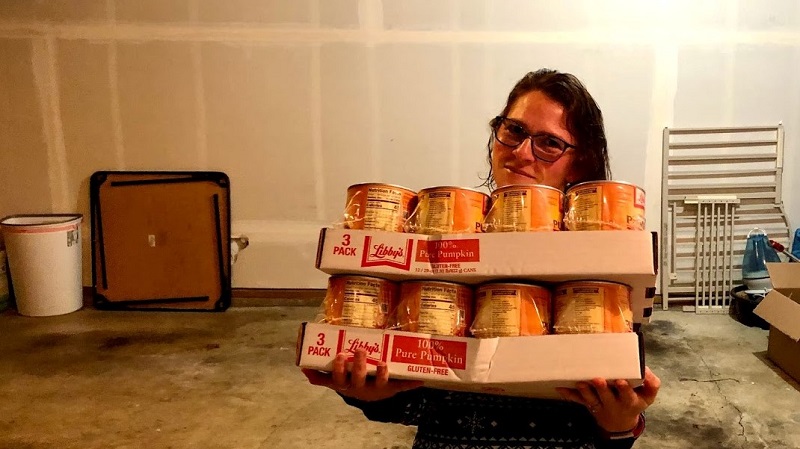I am generally over-prepared. I can’t help myself. I always have a full backup battery for my phone, shoes in my car for any change in weather, replacement lovies for my kiddos, and a variety of snacks in my office should anyone need them (not that there’s anyone in my office these days). When I travel I overpack because I just want to have something for every possible occasion, and when I’m hosting a meal, I always try to have backup options should something go wrong.

There are things you can store up besides emergency supplies and other tangible goods. For example, there is real science behind storing up faith and gratitude. Mental health experts suggest creating a daily gratitude journal, the idea being that if you write down a few things you’re grateful for each day, you’ll be able to look back on it when things aren’t so great and be reminded of all the good that’s come your way.
Parshat Miketz, which we read this week, reminds us of the importance of literally planning ahead and in doing so, restoring our faith. Joseph solves Pharaoh’s dreams and becomes a great leader in Egypt. He then marries and has sons named Ephraim and Menashe, and the land endures the seven years of plenty and seven years of famine. During the famine, Joseph’s brothers come to Egypt in search of food, and Joseph recognizes them, but they have no clue who he is. Joseph tests the brothers and asks for his younger brother Benjamin to be brought to him.
The dreams that Pharaoh shares are dreams which illustrate the concern of not having enough in your stores to provide in a time of need. But there’s more to it than grain silos. The 19th century Torah scholar the Sfat Emet (the name of his monumental commentary, which also refers to the rabbi himself) asks, “What can be learned from this parshah to prepare ourselves in good days, days in which holiness is revealed, to set the light in our hearts, to be there in times when holiness seems far off?” He answers: “We must store up resources of faith, even as the Egyptians stored grain, to nourish us spiritually when events turn against us.”
Parshat Miketz is read around Hanukkah, a time in the year when we have less light and more darkness. And what could be a more appropriate lesson during a pandemic than the lesson of storing up gratitude? Savor the recent memory of the Hanukkah candles. Store your moments of light, of gratitude, because you never know when you’ll need to tap into them.



